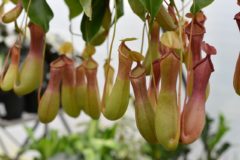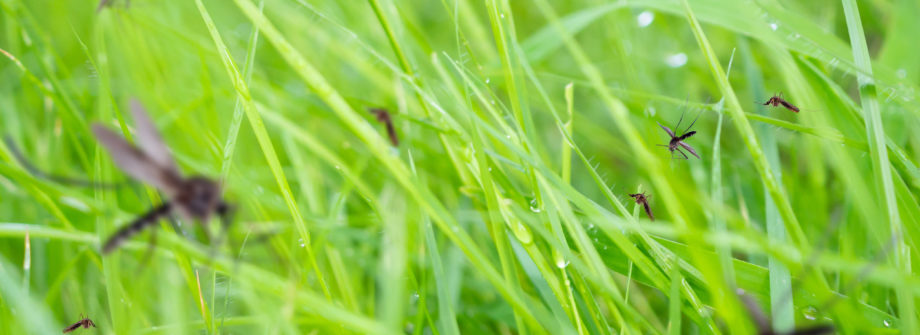Guest article by Lee Park and Rachael Baihn with natural solutions recommended by Exterior Designs, Inc.
Insects in your New Orleans home and yard can drive you buggy. A well-designed landscape includes flowers, plants, and shrubbery that can keep common pests away. Some insects in New Orleans are vital to the ecological balance. But the city has its share of mosquitoes, cockroaches, katydids, stinging caterpillars, crickets, and many others. Blame the heat, humidity, and proximity to Lake Pontchartrain for attracting insects.
Bug Biology 101
Most insects have a keen sense of smell — but they don’t detect scents and odors like humans do. Many insects “smell” by using their antennae or other organs. It gives them the ability to sniff out food, potential mates, and to avoid predators.
Bugs also produce odors that help them communicate with each other. Many plants are able to release pheromones that control an insect’s actions. A bug’s sense organs — usually the antennae — collect chemical signals through the mouth, genitalia, or pores.
Nature’s Pest Repellent
Gnats, flies, ants, and mosquitoes don’t care much for the scents emitted by certain plants. Disturbing odors in the foliage’s essential oils drive the little buggers away. Fragrant herbs, for example, have tiny globes of oils that can become released in high temperatures. The summertime heat and humidity in New Orleans produce fragrances that are pleasant to people but uncomfortable for insects.
Bug Repelling Plants
Perhaps the most unwelcome visitors to your New Orleans home and yard are the dreaded cockroaches, and you can hardly avoid them. Certain types of ornamental flowers and plants deter roaches and other insects.
Herbs
Basil repel mosquitoes and flies. Grow basil directly in the garden or containers. Lavender has a sweet smell that people enjoy, but it deters flies, moths, mosquitoes, and fleas. Lemongrass contains citronella, a natural mosquito repellent. Lemon thyme also deters mosquitoes — this hardy herb grows well in shallow soil. Other herbs that repel bugs are chives, fennel, dill, oregano, rosemary, sage, and parsley.
Mint has a sweet-smelling fragrance that bugs mosquitoes. Mint plants spread almost to the point of invasiveness, so it’s best to plant it in containers.
Flowers
Chrysanthemums, marigolds, nasturtiums, petunias, and geraniums are excellent bug-repelling flowers. Flowering plants such as periwinkle, black-eyed Susan, wisteria, and jasmine are among many others that keep the bugs at bay.
Carnivorous Plants

Pitcher plants eat wasps, flies, ants, beetles, slugs, and snails. Image by tngmarketing35 from Pixabay
With the ability to trap and eat insects, carnivorous plants lure bugs into their foliage by offering color, fragrance, and nectar. The insect is drawn into the plant, slips downward, and falls into a pool of moisture. The plant’s downward-facing cilia prevent the insects from climbing out. Carnivorous plants eat wasps, flies, ants, beetles, slugs, and snails. Venus flytrap and pitcher plants also enjoy an insect feast.
Vegetative Plant Repellents
Chrysanthemums, artemisias, spearmint, and tansy are famous for keeping ants away. Tobacco chases away flea beetles and worms. With their pungent smell, radishes repel cucumber beetles and cabbage maggots. Eucalyptus deters cabbage loopers and aphids. Clover and garlic will keep away crickets and some of the other insects you don’t want in your yard.
The Good Ones
Not every insect is a destructive pest. Spiders, lacewings, and some kinds of beetles eat other bugs. Parasitic insects lay eggs that push competing bugs to settle elsewhere. Pollinating plants need honeybees, butterflies, moths, and native bees to develop fruit. Birds eat mosquitoes and other insects. Bats chew on gnats, mosquitoes, grasshoppers, centipedes, ants, flies, and many other bugs for their midnight feast.
No matter what you do, your New Orleans landscape will attract insects. But adding nature’s own pest-repelling greenery will help keep it all manageable.
Lee Park is a botanist who researches eco-friendly pest control. While he enjoys studying the effects of bugs in his gardens, he wastes no time getting rid of rodents, which cause the most damage.

